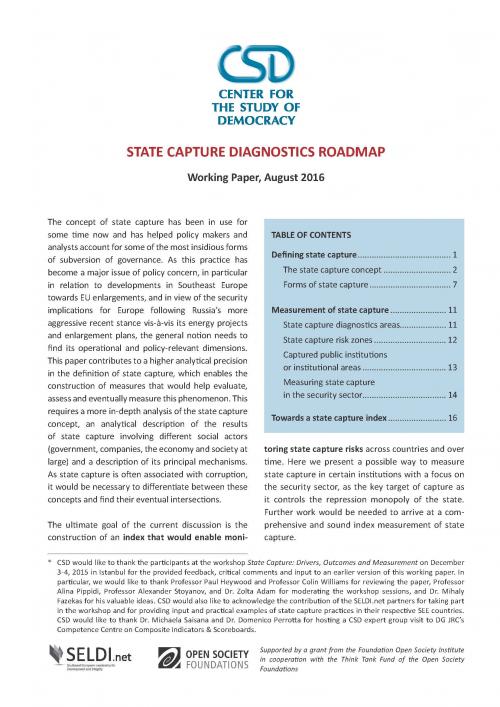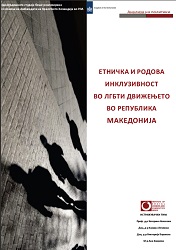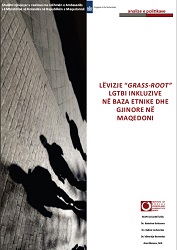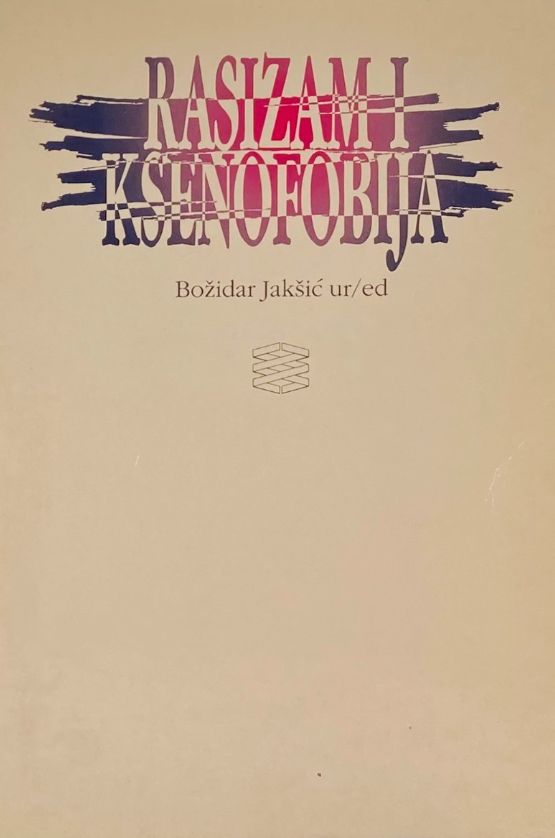
We kindly inform you that, as long as the subject affiliation of our 300.000+ articles is in progress, you might get unsufficient or no results on your third level or second level search. In this case, please broaden your search criteria.


















During civil end ethnic war in the former multinational Yugoslavia one of the main feelings amongst the population was xenophobia, because all the nations became contaminated by the conviction that „they could no longer live together". What brought into existence such a xenophobia was the nationalistic euphoria in Serbia in the 1990's, but in the other republics of former Yugoslavia as well. The proof can be found in the comparison of the latest results with those ten years earlier, when ethnic distance was rather small, as well as the expression of xenophobia towards the other people living together in the same state. However, a significant turn happened in the autumn 1996, when massive civil protests took place in Belgrade and the other large cities in Serbia: people began to liberate themselves from fear and mutual distrust forming new groupings based on mutual interests and goals (fighting for their civil rights concerning the fair treatment of the results of the local elections), behaving as free persons as well, opposite to the well-known meetings of the amorphous depersonalized masses. All of a sudden a critical public opinion was constituted enabling the population in protest to withstand sharp winter cold and police repression being in the streets for three months and demanding the confirmation of the opposition’s victory on local election. But what was mostly effective was a joy people expressed; so far somber and aggressive they became enthusiastic and gay, more communicative and ready to become a part of new communities. They expressed such feelings in a peaceful protest performing clever activities, turning thus attention of the world to themselves and their enduring energy. One may say that a citizen as a free personality was born during these protests, although by no means all the problems of nationalism, xenophobia and authoritarianism have been yet completely solved.
More...
Since 1987 xenophobia has been predominant in Serbia and Yugoslavia. It has been encouraged and promoted from above, through official media and with the energetic support of nationalist intelligentsia. This has not been surprising in an atmosphere of conflict and war among the nations in Yugoslavia. The author maintains that the predominant xenophobia has little resemblance with traditional suspicions and aversions in regard to other nations and states. Xenophobia, expressed in negative national stereotypes, is irrational but it has some links with historical experience. This experience would point toward the traditional enemies of Serbia in wars and memories of their armies as occupiers. In fact, among the negative stereotypes has figured prominently the United States, a state with which the Serbs had no conflicts or major misunderstandings. The explanation can be found that the management of propaganda and xenophobic indoctrination has been in the hands of communist professionals, who have continued their previous line of „anticapitalistic" propaganda, expressed in xenophobia towards the West in general and the United States as the principal „capitalist" nation. When the demonstrations in Serbian cities started after the electoral fraud of November 1996 the regime was in an awkward position. It had just started to adapt, after the signing of the Dayton Agreements on Bosnia and Herzegovina, to its new peace-making collaborative image. The demonstrators were initially labelled by state propaganda as chauvinists, conservatives, even fascists. Their reaction was swift and resulted in the removal of all Serb symbols and insignia and their replacement by Hags of foreign states. Official propagandists now found themselves in familiar waters and directed their efforts against „foreign hirelings and traitors". The reaction of the crowd was again very inventive: symbols of foreign countries gave now place to well designed and attractive banners with logos of successful international and foreign companies. The demonstrators thus indicated that they had opted for transition and capitalism and proved that the best weapon against xenophobia and stubborn official dumbness was irony. Irony and humor are also the best prevention against fear, fear being the major bastion of totalitarianism.
More...
The iconography of the protest was extremely complex. Ensigns of various countries, party Hags, emblems of faculties and universities, as well as attractive towels and pennants of car brands (its emblems being constantly present in the streets, „Ferrari" became a symbol of the protest), created such a mélange that simple conclusions arc impossible. Flags of European countries were to express the vision of Serbia and Yugoslavia in Europe and the world. But after a large media cry against, what they called, „the treacherous presence of foreign state Hags in the protests", the flags of non-European far away countries, or extremely small countries appeared in increasing numbers. This expressed irony towards the xenophobic authorities - a clear political message was sent by gay iconographic means: very often people put on themselves a multitude of flags of various countries thus assuming the image of „foreign mercenaries". „Banknotes" scattered at various points of the protest ridiculed the stories disseminated by the official media about foreigners distributing daily allowance to the demonstrators. Graffiti arc one of the most democratic media, since they do not require a lot: a piece of chalk or a marker, spray, paper... and aim at destroying the traditional values, questioning the politicians, political decisions and political system, as well as conventions of speech writing. A graffito reveals, in the first place, an attitude - a political attitude, but when put up and carried on a banner, it manifests simultaneously the intention of the author to participate in changing the world more actively and directly. Subversiveness is therefore, primarily political, but also orthographic and typographic, lexical, rhetorical, cultural. A graffito parodies, ridicules, reverses meanings, and magnifies in a caricatural way. A graffito on a banner has become a new medium of urban resistance. A resistance which is now public. Writing graffiti no longer means „a secret ritual of transgressing to the world of prohibition", it indicates that the most appropriate mean was found for individualizing the protest. This article reveals an often intertextual relationship between the graffiti and the regime’s slogans. This slogans which expressed xenophobia and national megalomania, were reinterpreted by graffiti and other iconographic tools using humor and irony, in a carnivalesque spirit and manner.
More...